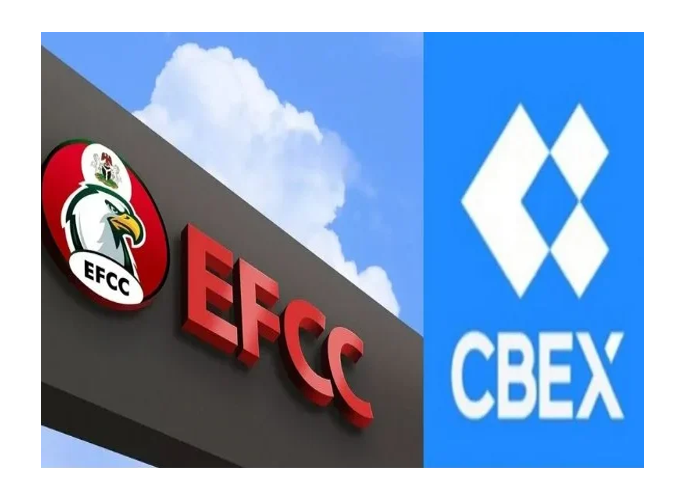In a major crackdown on financial crime, the Economic and Financial Crimes Commission (EFCC) has secured a court warrant to arrest six individuals linked to the spectacular collapse of Crypto Bridge Exchange (CBEX), a cryptocurrency platform accused of orchestrating an alledged $1 billion scam.
According to multiple reports from Naija News, The Advocate, and Punch, the suspects—Adefowora Abiodun Olanipekun, Adefowora Oluwanisola, Emmanuel Uko, Seyi Oloyede, Avwerosuo Otorudo, and Chukwuebuka Ehirim—allegedly masterminded a massive Ponzi scheme that siphoned off more than ₦1.3 trillion from about 600,000 unsuspecting Nigerians.
Disguised under the corporate umbrella of ST Technologies International Limited, the group dangled the tantalizing bait of a 100% return on investment within 30 days, supposedly powered by “advanced AI-driven crypto trading.” Enticed by the promise of quick and hefty profits, thousands of investors fell into the trap.
To bolster their credibility, the promoters reportedly flaunted official-looking certificates from the Corporate Affairs Commission (CAC) and the EFCC’s Special Control Unit Against Money Laundering (SCUML). However, authorities have clarified that such certificates merely acknowledge registration and do not confer legal authorization to operate investment schemes or financial services.
In a swift legal move, Justice Emeka Nwite of the Federal High Court granted the EFCC’s request to issue arrest and remand warrants for the suspects, stressing the urgency of a thorough investigation. Working in collaboration with INTERPOL, the EFCC is now in hot pursuit of both local and international operatives tied to the fraudulent network.
As the dust from the CBEX scandal settles, the EFCC has published a watchlist of 58 other entities suspected of running similar schemes, warning Nigerians to tread carefully and rigorously verify any investment offers.
Determined to reclaim stolen funds and deliver justice, the EFCC reiterated its commitment to shielding citizens from the ever-evolving threat of financial fraud.
The CBEX saga serves as a stark reminder: when investment returns sound too good to be true, they almost certainly are.
